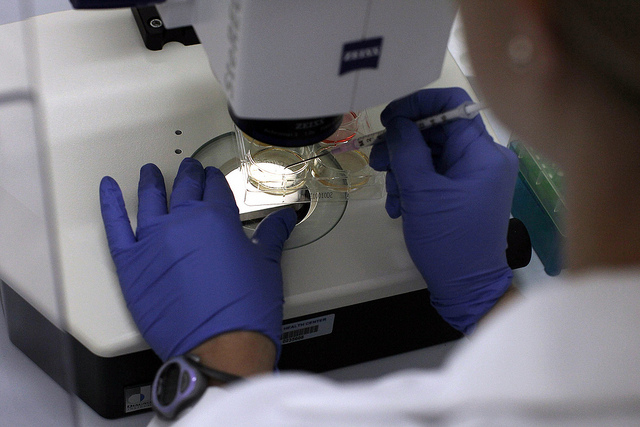perpetrators walk free as more than 70,000 rape kits remain untested
*Trigger Warning: Discussion of Rape*
New findings show more than 70,000 rape kits remain untested in the US, leaving victims with no justice or resolution. These kits, which collect forensic evidence from sexual assault, are vital for successful persecution and stopping serial rapists from offending again.
In 2001, RAINN (Rape, Abuse and Incest National Network) launched a campaign that drew attention towards the backlog of rape kits, instigating the Congress to implement the Debbie Smith Act, which has been labeled one of the most important anti-rape legislations of all time. The Act, named after a victim of rape who waited six years for her kit to be tested, provides grants to states for DNA analyses and managing backlogs, allocating $41 million worth of funding per fiscal year. While originally expiring in 2014, the funding has been reauthorised and will come back into action next year. Scott Berkowitz, president of RAINN, has stated that only around 51% of funding has gone towards casework and DNA testing. While Congress passed the Sexual Assault Forensic Evidence Reporting (SAFER) Act in 2013, which regulates a portion of the funding towards rape kits, the subsidies have instead been made towards ‘general DNA testing, administration or unrelated purposes.’ After a CBS News investigation, it has been shown that despite financial support, little improvement has been made and perpetrators are still walking free.
One such case is Valerie Neumann, who was raped on her 21st birthday. Despite the assault occurring three years ago, her rape kit still remains unopened. Valerie stated that authorities told her they did not have the funds to test her kit, costing at least $1,500. As said by CBS, prosecutors argued that they did not proceed with testing because they felt her case was ‘unwinnable’. In response, Neumann has stated, ‘they didn’t do their job to protect me and to protect everyone else.’
This backlog, despite authorities now receiving substantial funding, shows a lack of understanding towards the value of rape kits. End the Backlog has argued that authorities do not prioritise sexual assault, frequently disbelieving the victim or not seeing any technical value in testing unless the perpetrator was a stranger. Trent Crump, Sergeant of the Phoenix Police Department, which has over 1,700 untested kits, has stated that they have ‘no evidentiary value’, meaning that they have either already determined who the suspect is or that no crime actually occurred. However in Detroit, where 1,600 backlogged kits have been tested, 456 suspected serial rapists have been discovered. This highlights the value of the kits in reaching the truth. According to Dr. David Lasik, 71% of attackers are serial offenders, and without DNA evidence, these crimes are very difficult to convict.
There is no formal system to log or track rape kits, and these findings were discovered at only 1,000 of the 18,000 enforcement agencies. This shows that the number of untested rape kits may even be much larger, more likely in the hundreds of thousands. Mai Fernadez, executive director of the National Center for Victims of Crime, has claimed that leaving testing to individual discretion is a major downfall. End The Backlog has argued that there should be a criteria applied for testing the kits, with an emphasis on timeliness between police storage and crime lab testing.
While having vital importance to the case itself and finding the perpetrator, the testing of rape kits also have personal value. It provides some source of intermittent resolution, reassurance that everything is being done to find the perpetrator and hope that the ordeal may finally come to an end. The collection of these kits is often a re-traumatising and frightening process, taking up to six hours of swabbing, photographing and examining the victim’s entire body. The continual dismissal of these findings is not only un-empathetic, but also deters the rape survivor from believing there will be any point in undergoing such a strenuous process. This is not only false, but also detrimental to the case.
The number of untested rape kits demonstrates a major gap in the justice system, indicating that sexual assault is still not deemed a priority and that victim blaming continues to occur. While progress is being made, with many states implementing new policies to resolve this issue, these findings show that utilising rape kits more often will only occur when underlying attitudes within the justice system are fully addressed.


